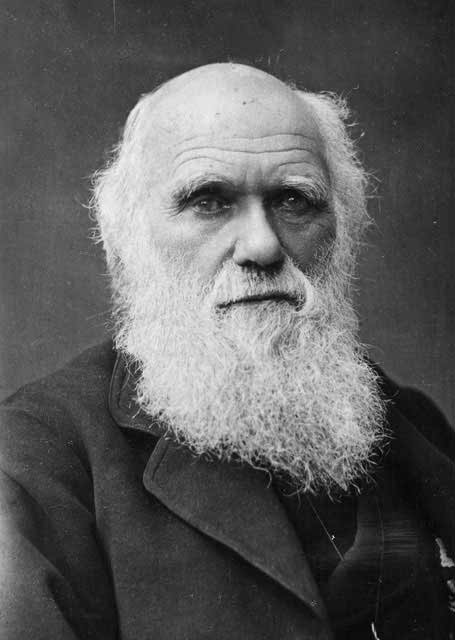Rare Darwin Drafts Go Online

Get the world’s most fascinating discoveries delivered straight to your inbox.
You are now subscribed
Your newsletter sign-up was successful
Want to add more newsletters?

Delivered Daily
Daily Newsletter
Sign up for the latest discoveries, groundbreaking research and fascinating breakthroughs that impact you and the wider world direct to your inbox.

Once a week
Life's Little Mysteries
Feed your curiosity with an exclusive mystery every week, solved with science and delivered direct to your inbox before it's seen anywhere else.

Once a week
How It Works
Sign up to our free science & technology newsletter for your weekly fix of fascinating articles, quick quizzes, amazing images, and more

Delivered daily
Space.com Newsletter
Breaking space news, the latest updates on rocket launches, skywatching events and more!

Once a month
Watch This Space
Sign up to our monthly entertainment newsletter to keep up with all our coverage of the latest sci-fi and space movies, tv shows, games and books.

Once a week
Night Sky This Week
Discover this week's must-see night sky events, moon phases, and stunning astrophotos. Sign up for our skywatching newsletter and explore the universe with us!
Join the club
Get full access to premium articles, exclusive features and a growing list of member rewards.
Darwin is going digital. To celebrate the 150th anniversary of the publication of Charles Darwin's "On the Origin of Species," the manuscripts detailing the theory of natural selection are being placed online.
On Tuesday, Darwin Manuscripts Project (darwin.amnh.org) will upload about 10,000 high-quality images of Darwin's scientific manuscripts and notes.
These pages include 34 of the 36 known and located draft leaves of "Origin," gathered together for the first time since Darwin wrote his seminal book, which was published on Nov. 24, 1859.
"These rare manuscript leaves from Origin are the crown jewels of our project and show Darwin in the process of writing," said David Kohn, director and general editor of the Darwin Manuscripts Project at the American Museum of Natural History in New York.
Kohn has studied Darwin's writing for decades, beginning with his correspondence and now moving on to his scientific papers.
"I've sat in the Cambridge University Library since 1974, touching these documents, but this is the first time that anyone can do this — online in this quantity and with this quality," Kohn said.
His co-editor for the "Origin" leaves is Randal Keynes, great-great-grandson of Charles Darwin.
Get the world’s most fascinating discoveries delivered straight to your inbox.
In addition to the rare "Origin" drafts, the Darwin Manuscripts Project will also put online about 10,000 additional images of Darwin's material. Notebooks and scientific writing from the period of time he spent on the HMS Beagle, when he made most of his observations of the natural world, through the writing of the "Descent of Man, and Selection in Relation to Sex," published in 1871, will be available with transcriptions and curatorial notations.
Future projects for the Darwin Manuscripts Project include compiling and digitizing additional Darwin manuscripts as well as reconstructing his library. Darwin was famous for reading widely on a variety of subjects ranging from insect-eating plants to pigeon breeding to the immorality of slavery. He often filled the margins of these books with notes, which shed light on the thinking that led him to formulate his theory of natural selection.
"Now with this digitalization project, readers can follow the conversational thread that changed our thinking on the origins of species and gave birth to modern evolutionary science," Kohn said.
The Darwin Manuscripts Project is funded by two grants from the National Science Foundation, and a new grant from JISC/NEH Transatlantic Digitization Collaboration program will fund the work to digitally reconstruct Darwin's working library as it stood at the time of his death in 1882.
- Vote: The Greatest Modern Minds
- Charles Darwin: Strange and Little-known Facts
- Images: Darwin on Display
 Live Science Plus
Live Science Plus











